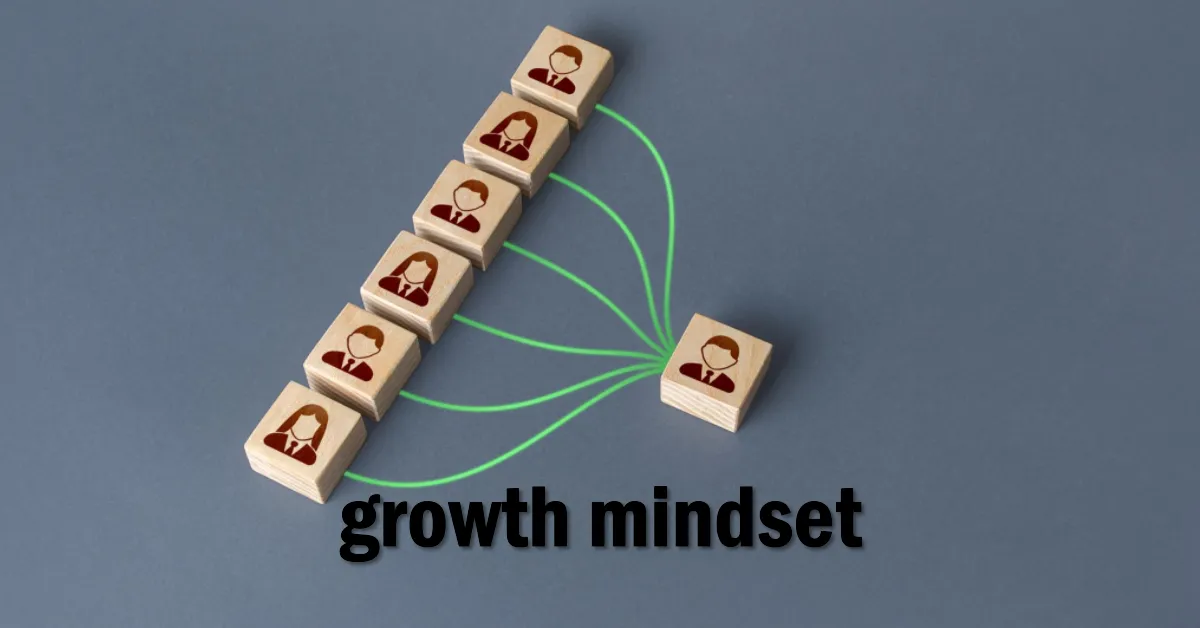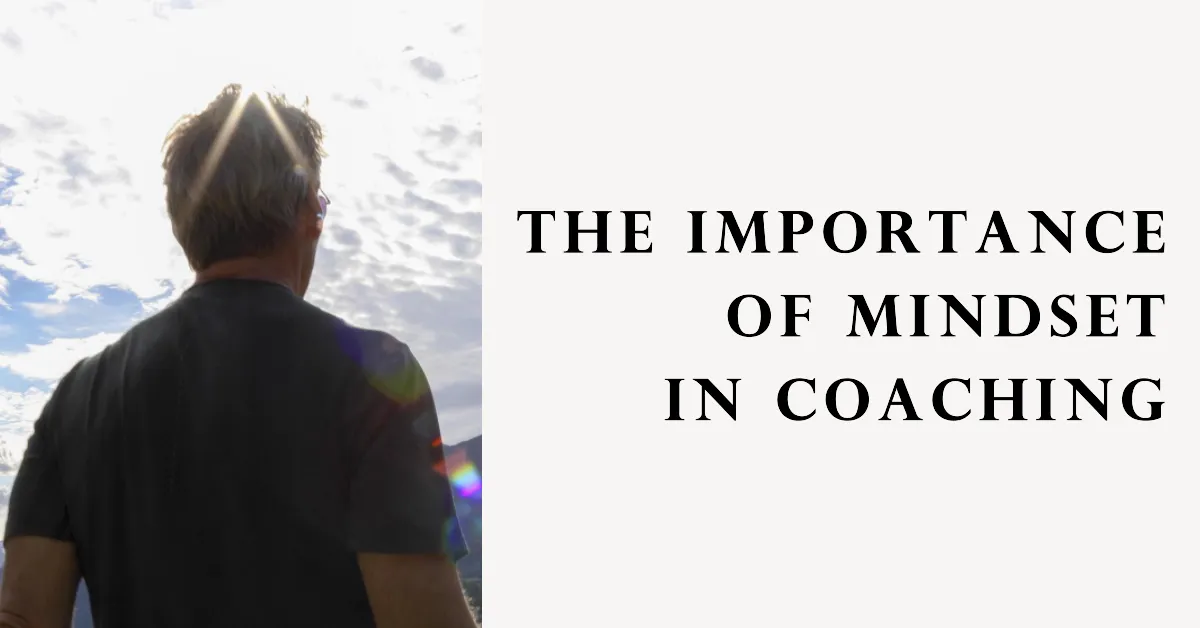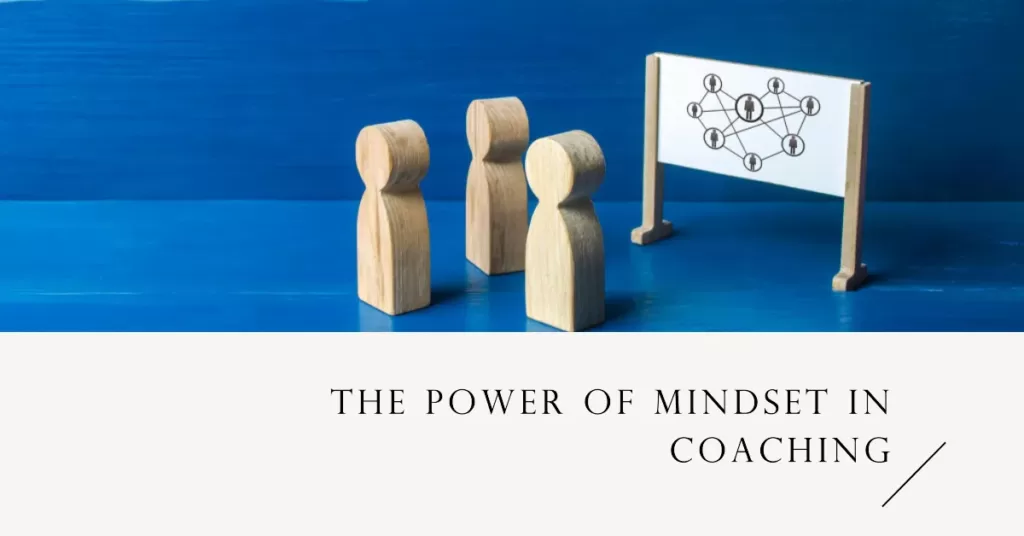Do you want to become a successful coach? Then it’s time to focus on your mindset. Your beliefs, attitudes, and thoughts can significantly impact your coaching success. The right mindset can help you cultivate resilience, flexibility, and creativity while working with clients. In contrast, a fixed mindset can limit your ability to grow as a coach, prevent you from adapting to changing situations, and hinder client progress.
In this article, we’ll explore why mindset is crucial for coaches and how you can develop a growth mentality that will enhance your coaching skills. We’ll also discuss techniques for encouraging a growth mindset in clients and avoiding the pitfalls of a fixed mentality. By embracing the power of mindset in coaching, you’ll be able to unlock new levels of success, fulfillment, and freedom in your career.
Table of Contents
- 1 Key Takeaways
- 2 Understanding the Impact of Mindset on Coaching
- 3 Cultivating a Growth Mindset as a Coach
- 4 Mindset Techniques for Coaching Success
- 5 Encouraging a Growth Mindset in Clients
- 6 Avoiding a Fixed Mindset Trap
- 7 The Importance of Mindset in Long-Term Coaching Success
- 8 Transforming Your Mindset with Mental Conditioning
Key Takeaways
- Mindset significantly impacts coaching success, and coaches who adopt a growth mindset are better able to support their athletes’ own mindsets.
- Cultivating a growth mindset involves identifying fixed mindset triggers that can hold coaches back and strategies for overcoming them, such as reframing negative self-talk and emphasizing possibilities and growth.
- Mindset techniques such as visualization, affirmations, mindfulness, and goal-setting are key for coaches to achieve success in their coaching practice.
- Coaches can help clients develop a growth mindset by emphasizing the power of effort and resilience over innate talent or abilities, viewing challenges as opportunities for growth and learning, setting realistic goals, and celebrating progress along the way.
Understanding the Impact of Mindset on Coaching
You need to understand how your mindset impacts your coaching, because it can either inspire or hinder the growth of your athletes. Your beliefs and attitudes determine how you approach challenges, setbacks, and opportunities in coaching. If you have a fixed mindset, you may see failures as proof of your limitations and avoid taking risks or seeking feedback. This can create a culture of fear and complacency among your athletes.
On the other hand, if you have a growth mindset, you may see failures as opportunities for learning and improvement. You may be more open to trying new strategies, seeking feedback from others, and persisting through obstacles. This can create a culture of innovation and resilience among your athletes. When you model a growth mindset in coaching, you demonstrate that success is not just about winning or losing but also about personal progress and development.
Moreover, when you adopt a growth mindset as a coach, you are better able to support your athletes’ own mindsets. You can help them develop their skills by giving them constructive feedback that focuses on effort rather than talent or ability. You can challenge them to set goals that push them out of their comfort zones while still being realistic and achievable. You can encourage them to embrace challenges as opportunities for growth rather than sources of anxiety or stress.
Understanding the impact of mindset on coaching is crucial for creating an environment that fosters personal growth, learning, and achievement among athletes. By adopting a growth mindset yourself as a coach, you model behaviors that inspire confidence, courage, and creativity in others. Your role is not only to teach technical skills but also to cultivate mental toughness, self-awareness, and motivation among athletes so they can become lifelong learners who thrive both on and off the field/court/track/etc.
Cultivating a Growth Mindset as a Coach

To become a successful coach, it’s important to cultivate a growth mindset. This involves identifying fixed mindset triggers that can hold you back, such as negative self-talk or fear of failure. From there, you can employ various strategies for overcoming these triggers and emphasizing possibilities and growth. By adopting this approach, you’ll be better equipped to help your clients achieve their goals.
Identifying Fixed Mindset Triggers
When you encounter challenges and setbacks, your fixed mindset triggers may surface and prevent you from making progress toward your goals. These triggers can come in many forms, such as negative self-talk, fear of failure, avoidance of challenges, and a focus on immediate gratification instead of long-term growth. It is important for coaches to be aware of these triggers in themselves and their clients, as they can hinder growth and development.
To identify fixed mindset triggers, start by paying attention to your thoughts when faced with a challenge or setback. Do you immediately feel defeated? Do you avoid the challenge altogether? Are you hesitant to try again after failing once? These are all signs of a fixed mindset. Additionally, pay attention to how you react to feedback or criticism. If you become defensive or ignore the feedback altogether, it could be a sign that your fixed mindset is at play. By recognizing these triggers in yourself and others, coaches can work toward cultivating a growth mindset and achieving greater success in their personal and professional lives.
Strategies for Overcoming a Fixed Mindset
Ready to break free from limiting beliefs and achieve your full potential? Here are some practical tips for overcoming a fixed mindset. First, try reframing negative self-talk by replacing it with positive affirmations. For example, if you catch yourself thinking “I’m not good enough”, replace it with “I am capable and worthy of success”.
Another strategy is to focus on the process rather than the outcome. Instead of fixating on achieving a certain goal, focus on the steps you need to take to get there. This can help shift your mindset from one of perfectionism and fear of failure to one of growth and learning. Remember that setbacks and mistakes are opportunities for growth, not signs of failure. By adopting these strategies, you can break free from limiting beliefs and cultivate a more growth-oriented mindset that will serve you both as a coach and in all areas of life.
Emphasizing Possibilities and Growth
Imagine yourself embracing the endless possibilities of growth, and how empowering it would feel to focus on your progress rather than fixating on outcomes. This is a key strategy for coaches to help their clients shift from a fixed mindset to a growth mindset. By emphasizing possibilities and growth, coaches can help individuals see that their potential is limitless and that they can achieve anything with hard work, dedication, and perseverance.
When you embrace the idea of growth, you are no longer limited by your current abilities or circumstances. Instead, you focus on the process of learning and growing, which allows you to develop new skills and overcome challenges. As a coach, it is important to encourage this mindset in your clients so they can achieve success not only in their sports careers but also in other areas of life. By emphasizing possibilities and growth over fixed outcomes, you are helping them unlock their true potential and live a more fulfilling life.
Mindset Techniques for Coaching Success
Using mindset techniques is key for coaches to achieve success in their coaching practice. One of the most important techniques is visualization, which involves imagining yourself achieving your goals and performing at your best. Visualization can help you improve your focus, motivation, and confidence as a coach. By seeing yourself succeed in your mind’s eye, you can create a positive self-image that will translate into better performance in reality.
Another effective technique is affirmations, or positive statements that reinforce positive beliefs about yourself and your abilities as a coach. Affirmations can help you stay motivated and focused on achieving your goals, even when faced with obstacles or setbacks. For example, if you’re struggling to connect with a particular athlete or team member, repeating an affirmation like “I am an effective communicator who can build strong relationships with my athletes” can help boost your confidence and give you the energy to keep trying.
A third technique is mindfulness, which involves staying present and focused on the moment without judgment or distraction. Mindfulness can help coaches tune out distractions and negative thoughts that might interfere with their ability to perform at their best. By cultivating mindfulness through meditation or other practices, coaches can develop greater awareness of their own thoughts and emotions, which can lead to more effective communication with athletes.
Goal-setting is another key technique for coaches looking to improve their mindset. Setting clear goals helps coaches stay focused on what they want to achieve and how they plan to get there. It also provides a sense of direction and purpose that can be motivating when facing challenges or setbacks. By setting realistic yet challenging goals for themselves and their athletes, coaches can cultivate a growth mindset that emphasizes continuous improvement rather than fixed abilities or limitations.
In conclusion, using mindset techniques is crucial for coaches looking to achieve success in their coaching practice. Visualization, affirmations, mindfulness, and goal-setting are just some of the many techniques available for developing a growth-oriented mindset that emphasizes possibilities rather than limitations. By incorporating these techniques into their coaching practice, coaches can improve their focus, motivation, and confidence, while also helping their athletes reach their full potential.
Encouraging a Growth Mindset in Clients
As a coach, it’s crucial to inspire your clients to cultivate a growth mindset. One way to do this is by emphasizing the power of effort and resilience over innate talent or abilities. Encourage your clients to view challenges as opportunities for growth and learning, rather than as threats to their self-worth. Remind them that mistakes are an inevitable part of the learning process and should be embraced rather than feared.
Another way to encourage a growth mindset in your clients is by setting realistic goals and celebrating progress, no matter how small. Help them understand that success is not just about achieving the end goal but also about the journey toward it. Encourage them to focus on what they have accomplished so far and use that momentum to keep moving forward.
It’s also important not to let your clients fall into the trap of comparison with others. Instead, help them recognize their unique strengths and talents and embrace their individuality. This will allow them to appreciate their own progress without constantly measuring themselves against others.
Remind your clients that developing a growth mindset is a process that takes time and effort. Encourage them to be patient with themselves and celebrate every step along the way. With consistent effort and practice, they can develop a growth mindset that will serve them well both inside and outside of coaching sessions.
Avoiding a Fixed Mindset Trap

When it comes to avoiding a fixed mindset trap, there are three key points you should keep in mind. Firstly, recognizing and addressing negative self-talk is crucial in cultivating a growth mindset. Secondly, avoid making comparisons and judgments as they can lead to feelings of inadequacy and hinder progress. Finally, reframing setbacks and challenges as opportunities for growth can help you maintain a positive attitude toward learning and development. Remember these tips when working with clients to promote a growth mindset.
Recognizing and Addressing Negative Self-Talk
You can break free from negative self-talk by recognizing and addressing it head-on. Negative self-talk is a common trap that many people fall into, especially when they are in challenging or stressful situations. It is easy to let these negative thoughts take over your mind and influence your actions, but it doesn’t have to be this way.
The first step in breaking free from negative self-talk is to recognize when it is happening. This means paying attention to your thoughts and identifying any negative beliefs or patterns that you may have. Once you become aware of these thoughts, you can start to challenge them by asking yourself if they are true and if they are serving you in any way. If the answer is no, then it’s time to use cognitive reframing to replace those negative thoughts with positive affirmations or new beliefs that will help build your confidence and empower you to take action toward your goals. Remember, mindset plays a crucial role in coaching success, so don’t let negative self-talk hold you back!
Addressing negative self-talk requires mindfulness and an intentional effort to shift our thought patterns toward positivity. When we identify and challenge our limiting beliefs, we open ourselves up to new possibilities and opportunities for growth as coaches. So take control of your mindset today by actively working toward replacing negativity with positivity – the transformation starts within!
Avoiding Comparisons and Judgment
Now that you’ve recognized and addressed your negative self-talk, it’s time to move on to the next step in developing a positive mindset as a coach. This involves avoiding comparisons and judgment of yourself and others.
When you compare yourself to others, you’re setting yourself up for disappointment and failure. You may feel like you’re not measuring up to someone else’s standards or achievements, which can lead to feelings of inadequacy or inferiority. Similarly, when you judge others, you’re putting them down and creating an atmosphere of negativity.
To help combat these tendencies, try focusing on your own progress rather than comparing yourself to others. Celebrate your own successes and learn from your mistakes without getting caught up in what other coaches are doing. Also, practice empathy toward both yourself and others by refraining from harsh judgments or criticisms. By cultivating a non-judgmental attitude, you’ll create a more positive atmosphere for everyone involved – including yourself!
| Positive Mindset | Comparisons | Judgment |
|---|---|---|
| Focus on personal progress | Avoid comparing oneself to others | Refrain from harsh judgments/criticisms |
| Celebrate successes & learn from mistakes | Don’t measure up to someone else’s standards/achievements | Cultivate empathy toward oneself & others |
| Create a positive atmosphere for all involved | Develop non-judgmental attitude | Focus on constructive insights |
By keeping these ideas in mind as a coach, you’ll be able to develop a more positive mindset that will benefit both yourself and those around you. Remember that everyone has their own unique path and journey – there’s no need to compare or judge anyone else’s progress or achievements. Stay focused on your own growth and development while practicing empathy toward both yourself and those around you. With this mindset in place, you’ll be well-equipped to guide your team toward success!
Reframing Setbacks and Challenges
Reframing setbacks and challenges is like putting on a new pair of glasses that allow you to see opportunities for growth and learning instead of obstacles. As a coach, it’s important to help your clients reframe their mindset when faced with setbacks or challenges. By doing so, they can develop a more positive outlook on their situation and learn from the experience.
One way to reframe setbacks is by asking your clients questions that encourage them to find the silver lining. For example, instead of asking “What went wrong?”, ask “What did you learn from this experience?” This helps shift the focus from failure to growth and highlights the positive aspects of the situation. With this approach, your clients will be less likely to give up or feel discouraged when faced with difficulties – they’ll be more motivated to keep trying until they succeed.
The Importance of Mindset in Long-Term Coaching Success

To achieve long-term coaching success, it’s crucial to prioritize building trust and rapport with your clients. Creating a supportive coaching environment that encourages open communication and a growth mindset is also essential. As a coach, you should aim to foster lifelong learning and growth in your clients, helping them reach their full potential both personally and professionally.
Building Trust and Rapport with Clients
Establishing a strong connection with clients through building trust and rapport is crucial for coaches to create a safe and supportive environment conducive to personal growth. Here are five ways you can build trust and rapport with your clients:
- Listen actively: When your clients feel heard, they will be more likely to open up and share their thoughts and feelings.
- Show empathy: Empathy is the ability to understand and share the feelings of others. When you show empathy, your clients will feel understood and supported.
- Be authentic: Authenticity means being true to yourself. When you are authentic, your clients will trust that you have their best interests at heart.
- Respect boundaries: It’s important to respect your client’s boundaries by not pushing them too hard or making them feel uncomfortable.
- Celebrate successes: Celebrating small wins along the way can help establish positive momentum and keep your clients motivated.
By following these tips, you can create a strong foundation of trust and rapport with your clients that will enable them to achieve their goals in a safe and supportive environment.
Creating a Supportive Coaching Environment
Creating a supportive coaching environment is all about making your clients feel comfortable and empowered to take control of their lives. As a coach, it’s important to create a safe space where your clients can open up and discuss their challenges without fear of judgment. This means actively listening to their concerns and offering them encouragement throughout the coaching process.
To promote this type of environment, you need to establish clear communication with your clients from the beginning. One way to do this is by setting expectations for how often you’ll meet and what types of feedback they can expect from you. Another way is by providing resources and tools that they can use outside of coaching sessions, such as worksheets or articles related to their goals. By creating a supportive coaching environment, you’re not only helping your clients achieve success but also building long-lasting relationships based on trust and mutual respect.
Encouraging Lifelong Learning and Growth
As you continue your coaching journey, it’s crucial to encourage lifelong learning and growth in order to keep up with the times and stay ahead of the curve. The world is constantly changing, and new techniques, technologies, and ideas are emerging all the time. If you want to be an effective coach who can help your clients achieve their goals, it’s important that you stay up-to-date with these changes.
A smart way to encourage lifelong learning and growth is by setting an example yourself. Attend conferences, read books on coaching or related fields, take courses online or in person – whatever works for you. Share what you learn with your clients and colleagues so they can benefit from your knowledge as well. When you show a willingness to learn and grow yourself, it will inspire others to do the same – creating a culture of continuous development within your coaching practice.
Transforming Your Mindset with Mental Conditioning
Developing the right mindset takes time and effort. This is usually achieved through a set of specific mental exercises that aim to provide tangible outcomes. If you are interested in shifting your mindset toward a more practical one, I highly recommend reading through my book “High-Performance Mindset” as it covers the mental conditioning strategies you need to completely change your perspective and mentality.
Mental conditioning techniques described in this book are specifically tailored to the needs of entrepreneurs and athletes who want to develop iron willpower and an undefeated mindset as well as optimize their performance levels with mental exercises. They will provide you with just the right tools you need to make a long-lasting change in your and your clients’ minds, so don’t wait and grab your copy today!




